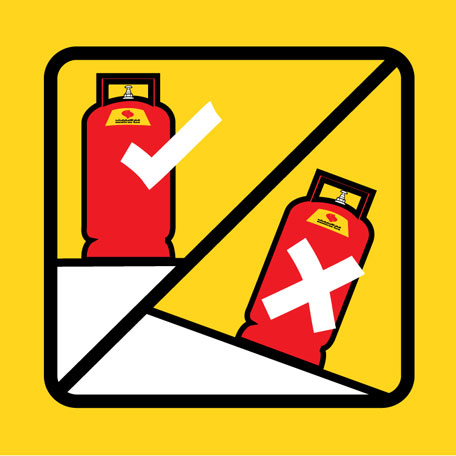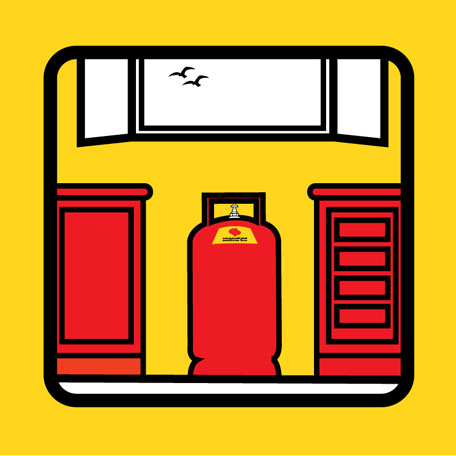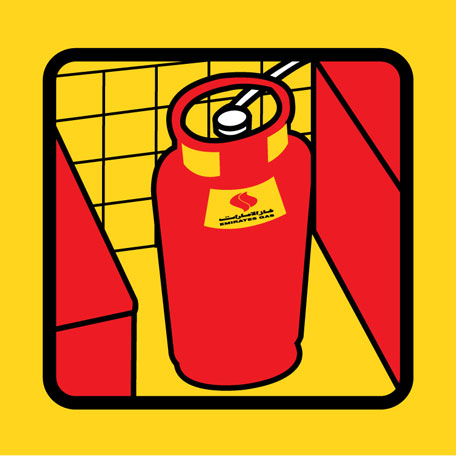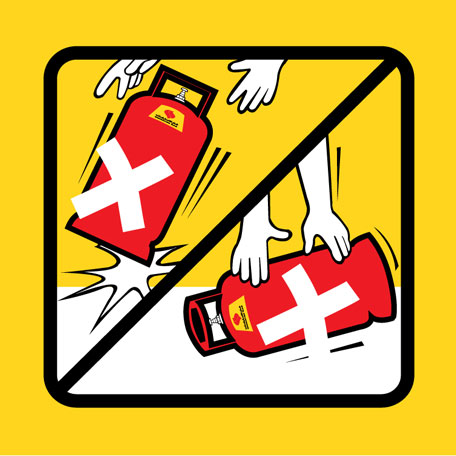- City Fajr Shuruq Duhr Asr Magrib Isha
- Dubai 04:18 05:38 12:19 15:45 18:54 20:13
In the month of Ramadan the consumption of gas is probably at its highest, so there is no better time to emphasise the safety measures that should be taken when keeping a gas cylinder in the house, argued Emirates Gas, a gas supplier in the UAE.
Accidents do happen, and not everybody is aware of the different factors that should be taken in consideration when keeping a gas cylinder in the home, said Ravindran Samaya Muthu, EHS and Business Excellence Manager at the company.
“One of the most common mistakes is that people use a lighter to inspect a leak. If there is indeed a leak and it is big enough, this can result in a fire.”
Along with ENOC and EPPCO the gas supplier this month launched the ‘Safe Cylinder, Safe Family’ campaign to strengthen awareness on the proper procedures in handling, storing and usage of LPG (Liquefied Petroleum Gas) cylinders at home.
Emirates 24/7 sums up some of the tips for a safe keeping of a gas cylinder at home.
 Where to keep your cylinder?
Where to keep your cylinder?
Proper storage of the cylinder in your home is paramount. Whether it concerns the cylinder connected or stored cylinders, there are some actors to be taken in consideration.
The cylinder should be placed in a well-ventilated location and not exposed directly to the sun or other heat sources. It should not be placed near an electrical socket or flammable substance, points out the company.
Further, the cylinder should be placed vertically on a firm and level surface, where good access to cylinder, valve and regulator is ensured.
When keeping the cylinder outside, place it in a cabinet which has wire mesh provided at the bottom to allow LP gas to escape into the air in case of a leak.

When you suspect a leak
When you observe the smell of gas, there might be a leak in the LPG equipment. This is dangerous as it can lead to fire or explosion.
It is important not to use a match a lighter to detect the leak, because this may induce a fire. Instead, use a soap water solution instead.
When using this solution, a leak can easily be detected by the appearance of a bubbly substance, whereas a good connection will see the soap leak away in fluid form, explains Ravindran.
Further, it is important not to operate any electrical appliances either by switching the button on or off. If the cylinder is safe to approach from upwind, the regulator or valve should be closed.
Windows and doors should be opened for the dispersion of the leak. If the leak persists, remove the cylinder to a safe and open/ventilated place.

Where to get your cylinder?
Every emirate has a list of approved providers and only these providers should be contacted for the distribution of a gas cylinder, explained Ravindran.
When you first order a gas cylinder, be sure to check whether your provider has the approval to provide gas in your emirate. When the cylinder is empty, call the same distributor to replace the old cylinder with a new one, and take the old cylinder away.
“It happens that people refill their cylinder in another emirate, although the refilled gas may not be of the same origin as the previous filling. It is very important to know the origin of the gas you are using,” stressed Ravindran.
A new cylinder should always be sealed, he tips.

Maintenance
If there is something wrong with a part of the LPG equipment, you could not find out soon enough. “Accidents occur due to compromised cylinder integrity,” says Ravindran. Regular check-ups are therefore recommended.
Check if your cylinder s not damaged, dented or rusted. Check for cylinder validity based on manufacturing and retest dates inscribed on the cylinder stay plate.
When maintenance work is required, a duly authorised company should be contacted. This company should be authorised by Civil Defense.
Any accesoires that need to be purchased must be obtained from authorised gas distributors.
Other tips
A common mistake made is the way of transporting the cylinder, explains Ravindran. “Some people tend to roll the cylinder from one place to another. A cylinder should never be rolled or dropped flat on the ground. Instead, the valve should always face upwards.”
Easy to neglect is also the recommendation to turn of the regulator or valve when leaving the house. However, this is an important safety measure to avoid unexpected accidents.
Further, do not connect more than one cylinder to one cooking appliance.
When using a regulator, use an approved low pressure domestic regulator that suits the stove and never tamper with it.s-vip-service-2014-07-30-1.557948
![]() Follow Emirates 24|7 on Google News.
Follow Emirates 24|7 on Google News.